Taking Chances, Chasing Dreams
By Jill Spotz
Heavenly Anderson ’24 first heard about Lafayette while she was in high school. As a high-performing student, Anderson was nominated to be a Posse Scholar by a program director at her school, Friendship Collegiate Academy in Washington, D.C.
“During my first connection with Lafayette, I met so many really interesting students. It was fun to get to know other people. That was my first introduction to Posse as well. And honestly, when I left that first interview, I knew I wanted to be a Posse Scholar.”
The Posse Scholars program is a four-year scholarship program that enables high school students with extraordinary academic and leadership potential to attend top colleges and universities. The Posse Foundation aims to expand the pool of students of diverse backgrounds from which top institutions can recruit. Posse’s primary purpose is to provide opportunities for these students who otherwise wouldn’t be able to afford a four-year college or university.
Posse places students in supportive, multicultural teams—or “Posses.” Lafayette’s partnership with the Posse Foundation began in 2001 with the first cohort from New York City. A second partnership in Washington, D.C., was added in 2006. Anderson is currently one of 80 Posse Scholars attending Lafayette.
It is difficult enough to attend college for the first time, often miles away from home, family, and friends. But when you add that some students are first generation and/or students of color, it becomes even more difficult to feel like you fit in. The Posse program appealed to Anderson because, with the help of her Posse, she knew she would feel less isolated.
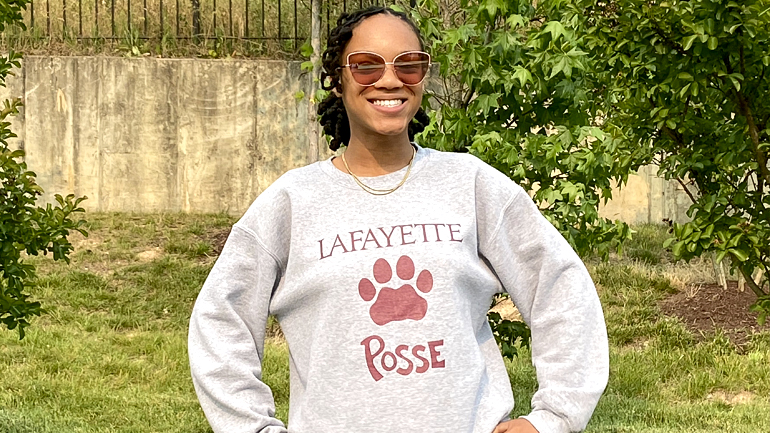
Heavenly Anderson ’24
“The core value of the foundation is that you don’t go to college alone,” Anderson explains. “The idea of a supportive group that knows each other and supports each other was very appealing to me.”
Anderson is also a four-year recipient of the David and Washington McDonogh Scholarship, which was established in 2003 through a bequest from the late Edward M. Phillips ’58.
“The fact that I was also selected for this scholarship shows me that people like me are here and they’re supporting me,” Anderson says. “I just really love the concept of the McDonough Network as well because I have a passion for community development. I’m really grateful because I feel like this scholarship reminds me that I’ll always come back to be there for future Heavenlys. Lafayette can be a great experience and people will always be there for you.”
Since her first moment on campus, Anderson has taken advantage of many opportunities to broaden her knowledge and experiences. She joined the Lafayette Outdoors Society (LOSt), where she experienced camping for the first time. Anderson previously served on the boards of NIA-Women of Purpose and Association of Black Collegians (ABC), and currently serves as a tour guide with Admissions. She also participated as a mentor in a program called You Can Too as a first-year student, is on the executive board of Stress Less Team, and a member of the pottery club and co-ed volleyball, to name a few.
“I’m the youngest in my family, so I was always battling with the dynamic of thinking that I don’t know enough. But I realized I do know enough to help others. That clicked for me through the You Can Too program. My experiences are very valuable, and people can learn from them.”
Anderson is double majoring in psychology and women, gender, and sexuality studies. Due to the influence of a terrific AP psychology teacher in high school, Anderson knew she wanted to pursue a degree in psychology. It wasn’t until she enrolled in a women and gender class during her first year at Lafayette that the idea of a confluence between psychology and women and gender studies clicked and even more so, that she could utilize this duality of knowledge to actually help people.
“Wow! During that first intro to women, gender, and sexuality class, I felt like the professor was describing my lived experiences and the things that I am passionate about,” Anderson says. “However, I never had the vocabulary to be able to articulate it. I immediately knew it was something I wanted to learn more about. There are concepts I can pair with psychology, and there’s a good chance I can help others.”
Anderson didn’t have to wait until she graduated to put her knowledge to use. She applied some of the concepts she learned through a study abroad experience in Samoa last fall. The trip was specifically focused on social and environmental change. While in Samoa, she traveled and lived in Savai’i, the largest of the Samoan islands, as well as Amalie, a small village in the middle of Samoa. She also traveled and stayed in Fiji for a portion of her stay.
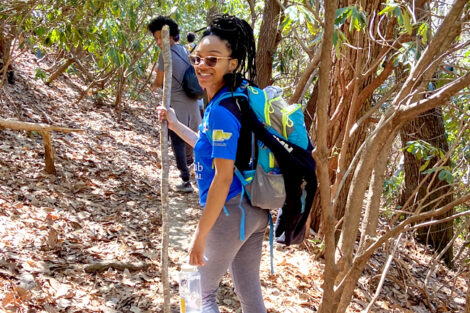
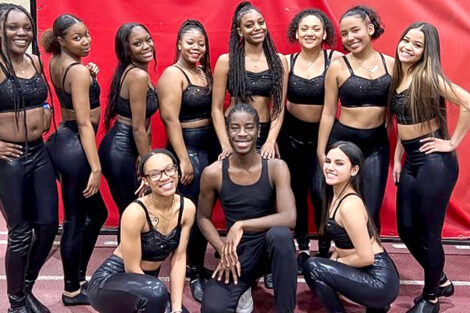
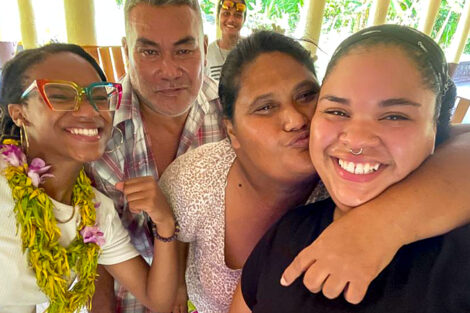
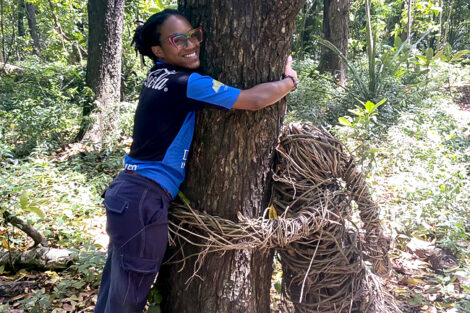
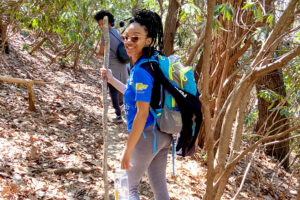
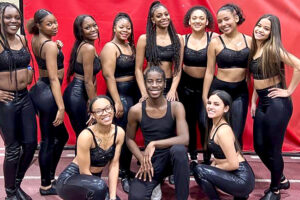
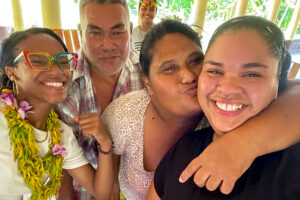
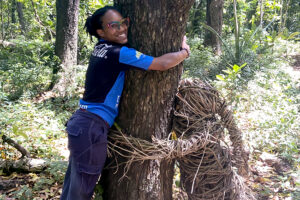
During her time in Samoa, Anderson researched gender dynamics within traditional Samoan dance. Specifically, she focused on the dichotomy that exists involving gender in two dances–the Siva Afí and Taualuga.
“Siva Afí is traditionally performed by men,” Anderson explains. “This is a fire/knife dance. One story passed down in Samoan culture was that it was forbidden for women to touch fire because it was unholy or brought bad luck. But, there are women who are Siva Afí champions. I looked at how these women are interacting in society as champions in a traditionally male-dominated dance.”
Taualuga, on the flip side, is traditionally performed by women in roles where they are representing a community or their village. Anderson is in the process of researching if men perform this dance.
“The topic of dance is very personal to me and one of the reasons why I chose this as my research focus,” Anderson says. “I enjoy breaking down each movement and analyzing them because each movement means something. I am decoding dances and learning about people’s personal experiences. Dance is a large aspect of Samoan culture, and it’s actually very unique and different from any type of Pacific Island dancing or anything that I have been exposed to in America.”
Anderson plans to pursue a position in government or at a nonprofit after graduating this May. She is grateful for the many opportunities and experiences that Lafayette has provided. “Lafayette is a school that has really promoted community, and that is important to me,” Anderson says. “Being able to be in a space where I know I can create something but also be supported to try something new or different is important. I can explore things I’ve never thought I would be able to or thought were for me. I really appreciate that.”